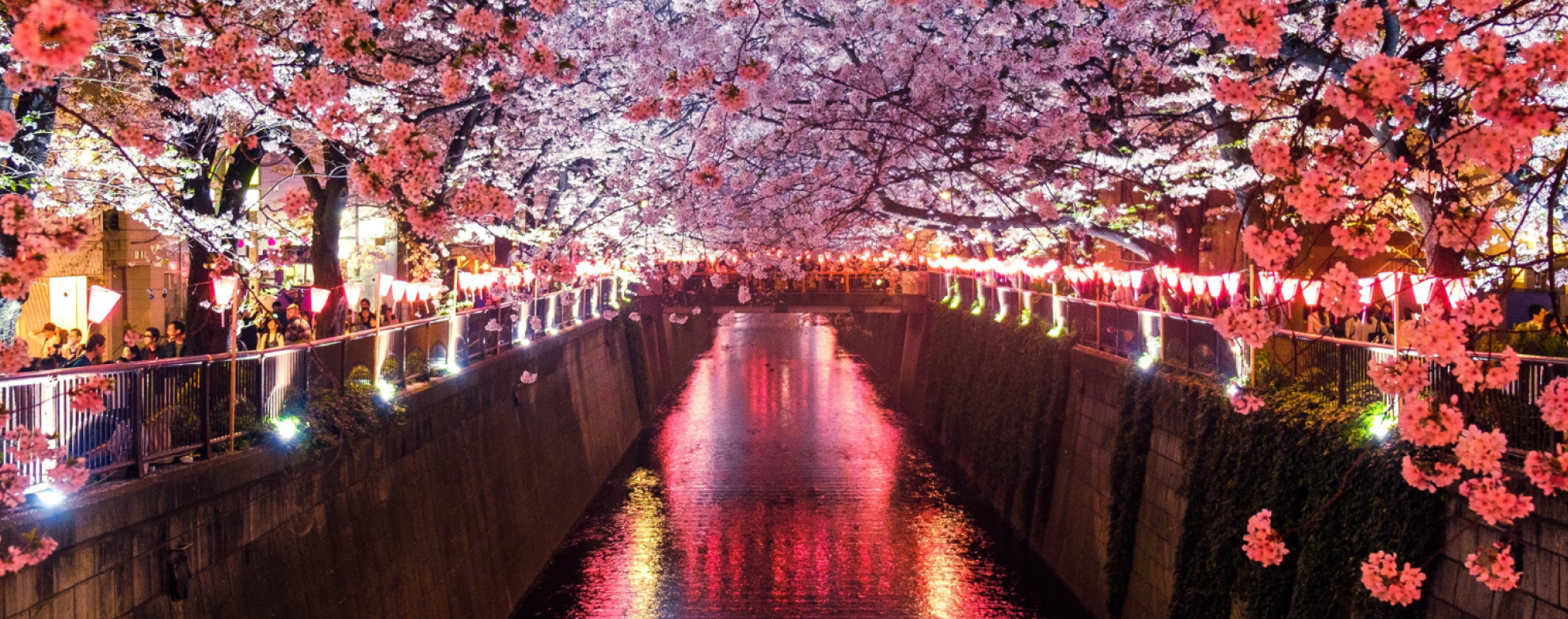Applying four Japanese business concepts to global mobility

Japan is a fascinating and unusual country. Many historians suggest that much of its unique personality comes from the fact that it deliberately isolated itself from the rest of the commercial world between 1633 and 1853. Its present-day economic significance and influence on global trade are almost miraculous considering that, for 220 years, that trade happened without it.
Japanese businesses work according to different rules.
One crucial legacy of this isolation was that Japan has developed its own ways of doing things. Because it was denied – some might say spared – the cross-pollination of ideas that eventually led to a general acceptance of a homogenized, ‘global’ way of operating, Japanese companies do things differently. Even now, almost 200 years after the first foreign trading vessels sailed into the Bay of Edo, Japanese businesses work according to different rules.
Philosophies and concepts such as kaizen, shuhari, omoiyari and ikigai shape the way Japanese businesses and people operate – and are therefore ideas that expats need to understand before they go.

Kaizen - for better performance and a better experience
Perhaps the best known of the philosophies mentioned, kaizen translates as continual improvement. It describes all business activities that aim to reduce waste and improve performance and can be applied to every part of the enterprise from assembly lines to management practices and board-level decision making.
One of the most famous examples is the Toyota Way, where a highly structured process evolved over years to help the Japanese industrial giant eliminate what it saw as wasteful practices. At Toyota, kaizen meant, amongst other things, reducing time spent waiting between tasks, preventing unnecessary conveyance (moving things around before they could be worked on) and empowering workers to stop production in order to signal a quality issue.
Kaizen principles can also be applied to self-improvement, it will make you a more effective and productive person on your return.
It is important for expats – especially those working for Japanese-owned companies – to be familiar with the concept. A key part of kaizen is that it involves everyone within the organization and is applied for the mutual benefit of workers and the company.
Also, don’t forget that kaizen principles can also be applied to self-improvement. Learning more about kaizen won’t just help you to fit in better and understand how organizations work in Japan – it will make you a more effective and productive person on your return.

Shuhari - patiently does it
Much of our understanding of Japanese philosophies has come through exported martial arts, which have been enthusiastically adopted around the world. A good example can be seen in the learning principles behind karate. The end product of karate is effective self-defense – but the underlying concept of shuhari is a learning method that can be used to achieve excellence in any field from agile software development to sword-making (video).
The underlying concept of shuhari is a learning method that describes three stages – shu/ha/ri.
Shuhari is a compound word that describes three stages of learning – shu/ha/ri. The first stage of ‘Shu’ is about doing without questioning. Follow the instructions of the master. Do what they do until it becomes natural. There is a strong physical sense to this stage; it is akin to muscle memory, where a golf swing, a painting technique or a dance move becomes instinctive. As one practitioner puts it (video) “It is learning with the body instead of with the mind. I could tell you a thousand times how to ride a bicycle but you would only really learn by doing it.”
Once the skill has been thoroughly learned, students move to “ha”, which is when they can experiment with alternatives. They know the basics, and they are now qualified to question those basics. If the alternatives prove successful, they may be fully adopted – which is the stage of “ri” - which represents a complete break.
This logical explanation helps the non-Japanese reader to understand the concept because we like to categorize and analyze in order to understand. Few Japanese people will use these definitions simply because they don’t need to. Shuhari is instinctive and naturally used within the Japanese culture.
But does shuhari apply outside Japan?
One of the key characteristics of the Japanese working environment is its collective mindset – or rather reluctance to embrace the individualist mindset that is dominant in places like Europe and the US. In Japan, everyone understands there is a long period of patient, dutiful “shu” before they become knowledgeable or proficient enough to enter the “ha” or “ri” stage. It is simply not done.
Shuhari is instinctive and naturally used within the Japanese culture, for example junior staff are far less likely to voice opinions in a meeting when a senior member of staff is present.
The impatience of youth would, therefore, be frowned upon – it is seen as both naïve and insolent. In more individualist cultures, there is a tendency to see suggestions from younger team members as fresh ideas from a new generation.
Expats working in Japan will note for example that junior staff are far less likely to voice opinions in a meeting when a senior member of staff is present. In their minds, they are not showing a lack of ambition, ability or knowledge. They are acting properly and displaying an understanding of a proven and culturally accepted process.
Expats need to understand the importance of shuhari. You may never hear it explicitly mentioned but, like so many Japanese concepts, it is simply how things are done. Be aware of it and you will see examples wherever you go.

Omoiyari - make a good impression on your hosts
Omoiyari is almost impossible to translate – but it is a concept that is known all around the world. What varies is its perceived importance as a cultural norm. Essentially, it means to act with conscious consideration for the good of others.
A good deed, you might say, but with the emphasis on seeing things from another’s perspective and helping them even to your personal detriment. Giving up your seat to an elderly train passenger, taking time to help someone who looks lost, or even just tidying up after yourself so the next person doesn’t have to do it.
It seems like common sense, but it is an integral part of Japanese culture. To demonstrate omoiyari, is to act with dignity. One explanation of why this idea has thrived in Japan lies in the close-knit nature of its society. The country’s deliberate policy of self-isolation in the 18th and 19th centuries has increased the sense of duty towards each other. Contrast this with the country that might describe itself as one of the most cosmopolitan over that same period – the US – and the spirit of omoiyari is not as strong. This is not to say US citizens are uncharitable; but the main rule of society is that people are responsible for themselves, not each other.
Omoiyari is a concept that is known all around the world. Expats are typically not only respectful of their host country’s culture but also anxious to make a good impression on a personal level.
As visitors to a foreign country, expats are typically not only respectful of their host country’s culture but also anxious to make a good impression on a personal level. Being polite and considerate to others is a good move wherever you go in the world; but remember that, in Japan, it is a fundamental way of life.

Ikigai - add meaning to your assignment
Step back for a moment and consider your answer to a very fundamental question: how should you live your life?
We are all subject to a number of different motivations that guide how we conduct ourselves and what we spend our time doing. Most of the time, these motivations are wrapped up in our values and the pressures and temptations of the situation in which we find ourselves. We do what we do in life for a number of different reasons.
Spend your time according to the principle of “ikigai”.
The Japanese find the answer to the question by considering just four distinct motivations. According to the principle of “ikigai” you should spend your time doing the following:
- Things you are good at
- Things you enjoy doing
- Things that bring you reward
- Things that are good for the world around you
There is nothing new about these four ideas – indeed they drive the actions of every human being on the planet. But without this structure, it is easy to put too much emphasis on a single driver. Does your career bring you a great income but little pleasure? Do you have talents that go unused? Do you focus most of your energy on yourself instead of others?
The Japanese carefully aim to find the point where these four motivations overlap – where equal consideration is given to each, thus achieving a desirable and worthy balance in their lives. This intersection point is known as Ikigai - which loosely translates as “life purpose”. Everyone’s ikigai is different since everyone has different talents, family situations, social environments and so on. But there is a common understood method by which everyone can achieve a balance that will bring them maximum fulfillment from life.
Ikigai will help you to understand yourself and will bring your motivations for an assignment into sharp relief.
So what does ikigai mean to expats? There is a wider issue here. Each assignee has their reasons for accepting the posting. It may be a career move, it may be about exploration and self-improvement. Considering the principles of ikigai brings your motivations into sharp relief.
While understanding the other philosophies mentioned above will more likely help you to make sense of the behavior of the people around you, ikigai will help you to understand yourself. Find the meaning behind what you are doing and you will enjoy the experience all the more and make a greater success of it. In equal measure, of course.
Japan in the FIDI spotlight in 2020
In 2020, the annual FIDI Conference will be held in Osaka on 26-29 April, where Affiliates and FIDI friends will discuss the latest developments in the relocation sector. Find out more here.



